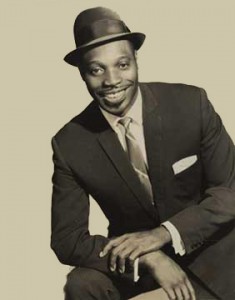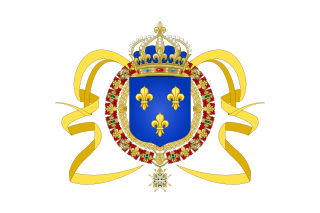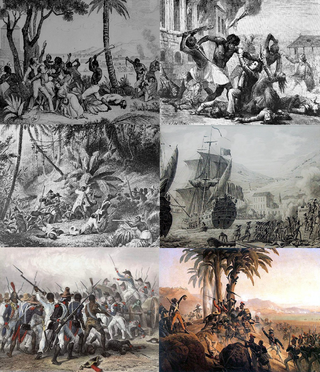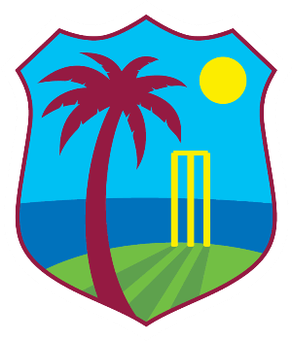Related Research Articles

Henri Christophe was a key leader in the Haitian Revolution and the only monarch of the Kingdom of Haiti.

François-Dominique Toussaint Louverture also known as Toussaint L'Ouverture or Toussaint Bréda, was a Haitian general and the most prominent leader of the Haitian Revolution. During his life, Louverture first fought and allied with Spanish forces against Saint-Domingue Royalists, then joined with Republican France, becoming Governor-General-for-life of Saint-Domingue, and lastly fought against Bonaparte's republican troops. As a revolutionary leader, Louverture displayed military and political acumen that helped transform the fledgling slave rebellion into a revolutionary movement. Along with Jean-Jacques Dessalines, Louverture is now known as one of the "Fathers of Haiti".

Aldwyn Roberts HBM DA, better known by the stage name Lord Kitchener, was a Trinidadian calypsonian. He has been described as "the grand master of calypso" and "the greatest calypsonian of the post-war age".

Jean-Jacques Dessalines was the first Haitian Emperor, and leader of the Haitian Revolution, and the first ruler of an independent Haiti under the 1805 constitution. Initially regarded as governor-general, Dessalines was later named Emperor of Haiti as Jacques I (1804–1806) by generals of the Haitian Revolutionary army and ruled in that capacity until being assassinated in 1806. He spearheaded the resistance against French massacres upon Haitians, and eventually became the architect of the 1804 Haitian Massacre against the remaining French residents of Haiti, including some supporters of the revolution. Alongside Toussaint Louverture, he has been referred to as one of the fathers of the nation of Haiti.

Saint-Domingue was a French colony in the western portion of the Caribbean island of Hispaniola, in the area of modern-day Haiti, from 1697 to 1804. The name derives from the Spanish main city on the island, Santo Domingo, which came to refer specifically to the Spanish-held Captaincy General of Santo Domingo, now the Dominican Republic. The borders between the two were fluid and changed over time until they were finally solidified in the Dominican War of Independence in 1844.

Alexandre Sabès Pétion was the first president of the Republic of Haiti from 1807 until his death in 1818. One of Haiti's founding fathers, Pétion belonged to the revolutionary quartet that also includes Toussaint Louverture, Jean-Jacques Dessalines, and his later rival Henri Christophe. Regarded as an excellent artilleryman in his early adulthood, Pétion would distinguish himself as an esteemed military commander with experience leading both French and Haitian troops. The 1802 coalition formed by him and Dessalines against French forces led by Charles Leclerc would prove to be a watershed moment in the decade-long conflict, eventually culminating in the decisive Haitian victory at the Battle of Vertières in 1803.

"La Dessalinienne" is the national anthem of Haiti. This march was written by Justin Lhérisson and composed by Nicolas Geffrard.

Ouest (French) or Lwès is one of the ten departments of Haiti. It is located in south-central Haiti, linking the Great-North and the Tiburon Peninsula.

The Haitian Revolution was a successful insurrection by self-liberated slaves against French colonial rule in Saint-Domingue, now the sovereign state of Haiti.
The Honourable David Michael Rudder OCC is a Trinidadian calypsonian, known to be one of the most successful calypsonians of all time. He performed as lead singer for the brass band Charlie's Roots. Nine years later, Rudder stepped outside the band, entering the calypso tent as a solo calypsonian in 1986, which was followed by an unprecedented rise to fame.

The West Indies men's cricket team, nicknamed The Windies, is a men's cricket team representing the West Indies—a group of mainly English-speaking countries and territories in the Caribbean region—and administered by Cricket West Indies. The players on this composite team are selected from a chain of fifteen Caribbean nation-states and territories. As of 7 June 2024, the West Indies cricket team is ranked eighth in Tests, and tenth in ODIs and third in T20Is in the official ICC rankings.

Oswald Durand was a Haitian poet and politician, said to be "to Haiti what Shakespeare is to England, and Dante to Italy." He was also a Haitian writer and poet of French and Creole expression, considered as the national poet of Haiti. Besides he was also judged as a Romantic poet and the most prolific one in the nineteen centuries. These 20th-century successors such as René Depestre, and Jacques Roumain congratulated Oswald Durand for his authentic expressions and honored him as a forerunner of Haitian indigenism. He was born in the northern part of Haiti, in the city of Saint-Louis du Nord. In 1842, both his parents died in the earthquake that devastated the city of Cape Haitian. Oswald Durand, and his sister, were welcomed in their maternal grandmother who raised them. He spent most of his childhood outside the city where he was born. Because of political instabilities in Haiti, he was forced to leave school and to educate himself without having recourse to a teacher.
Willow is an American pay television sports channel which is completely devoted to airing overseas cricket events, including live and recorded matches and other cricket-related programming in English, with the majority of its advertising targeted towards the Indian subcontinent diaspora in North America. The network is carried both as a traditional subscription-television channel which airs on pay-TV providers, and a paid streaming service available online.
The War of Knives, also known as the War of the South, was a civil war from June 1799 to July 1800 between the Haitian revolutionary Toussaint Louverture, a black ex-slave who controlled the north of Saint-Domingue, and his adversary André Rigaud, a mixed-race free person of color who controlled the south. Louverture and Rigaud fought over de facto control of the French colony of Saint-Domingue during the war. Their conflict followed the withdrawal of British forces from the colony earlier during the Haitian Revolution. The war resulted in Toussaint taking control of the entirety of Saint-Domingue, and Rigaud fleeing into exile.

The Saint-Domingue expedition was a large French military invasion sent by Napoleon Bonaparte, then First Consul, under his brother-in-law Charles Victor Emmanuel Leclerc in an attempt to regain French control of the Caribbean colony of Saint-Domingue on the island of Hispaniola, and curtail the measures of independence and abolition of slaves taken by the former slave Toussaint Louverture. It departed in December 1801 and, after initial success, ended in a French defeat at the Battle of Vertières and the departure of French troops in December 1803. The defeat forever ended Napoleon's dreams of a French empire in the West.
"Haiti I am Sorry", or simply "Haiti", is a calypso song written and composed by David Rudder, and first recorded in 1988 for the album Haiti by David Rudder and Charlie's Roots. The song, which begins with the words: "Toussaint was a mighty man/ and to make matters worse he was black...", is a tribute to the glory and suffering of Haiti, and was described in the AllMusic review as "a remarkable ode to Caribbean unity".

The Haitian Declaration of Independence was proclaimed on 1 January 1804 in the port city of Gonaïves by Jean-Jacques Dessalines, marking the end of 13-year long Haitian Revolution. The declaration marked Haiti becoming the first independent nation of Latin America and only the second in the Americas after the United States.
For a history of Afro-Caribbean people in the UK, see British African Caribbean community.

The Indigenous Army, also known as the Army of Saint-Domingue was the name bestowed to the coalition of anti-slavery men and women who fought in the Haitian Revolution in Saint-Domingue. Encompassing both black slaves, maroons, and affranchis, the rebels were not officially titled the Armée indigène until January 1803, under the leadership of then-general Jean-Jacques Dessalines. Predated by insurrectionists such as François Mackandal, Vincent Ogé and Dutty Boukman, Toussaint Louverture, succeeded by Dessalines, led, organized, and consolidated the rebellion. The now full-fledged fighting force utilized its manpower advantage and strategic capacity to overwhelm French troops, ensuring the Haitian Revolution was the most successful of its kind.

Toussaint Louverture: The Story of the Only Successful Slave Revolt in History is a three-act play about Toussaint L'Ouverture, the leader of the Haitian Revolution, written by C. L. R. James in 1934.
References
- ↑ "Darren Sammy says bouncer rule was introduced to restrict success of West Indies bowlers". The Bridge Chronicle. June 26, 2020. Retrieved June 14, 2024.
- ↑ "Jean-Jacques Dessalines". Brittanica. April 25, 2024. Retrieved June 14, 2024.
- ↑ Martin, Ali (June 9, 2020). "Calypso Kings: how David Rudder created the West Indies' anthem". The Guardian. Retrieved June 14, 2024.
- ↑ "Trinidad rallies round West Indies as T20 cricket comes to its spiritual home". espnCricInfo. Retrieved June 14, 2024.
This article has not been added to any content categories . Please help out by adding categories to it so that it can be listed with similar articles. (June 2024) |